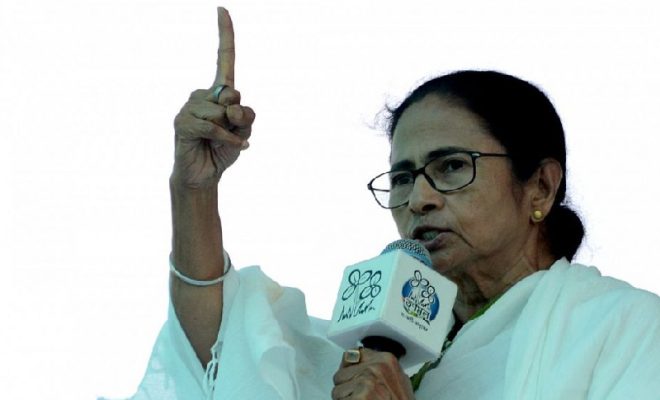Behind the Headlines: Mamata Banerjee’s Hard Line on Nepotism

Mamata Banerjee Denounces Relationship with ‘Greedy’ Brother Amidst Howrah Candidate Revolt
In a startling turn of events, Mamata Banerjee, the Chief Minister of West Bengal, has publicly disowned her younger brother, Babun Banerjee, after he openly revolted against the party’s chosen candidate for the Howrah Lok Sabha seat. This rift within the Banerjee family has grabbed headlines and sparked speculation about the political dynamics at play.
The Revolt of Babun Banerjee
Babun Banerjee, Mamata Banerjee’s sibling, expressed his dissatisfaction with the party’s decision to field Prasun Banerjee as the candidate for the Howrah Lok Sabha seat. In a bold move, he declared that he would contest independently if necessary, citing Prasun Banerjee’s unsuitability for the position. Babun Banerjee’s discontent stems from a perceived snub by Prasun Banerjee in the past, adding fuel to the fire of this familial feud.
Mamata Banerjee’s Response
In a firm rebuttal, Mamata Banerjee asserted that she would not tolerate nepotism within her party. She categorically stated that Babun Banerjee’s actions were driven by greed and self-interest, rather than genuine concern for the party’s welfare. The Chief Minister minced no words in severing all ties with her brother, emphasizing that he would no longer be recognized as a member of her family.
This rift within the Banerjee family has wider implications for West Bengal’s political landscape. It underscores the challenges faced by Mamata Banerjee in maintaining party discipline and unity, especially in the run-up to crucial elections. The public spat with her brother exposes internal fissures within the Trinamool Congress and provides fodder for opposition parties eager to capitalize on any signs of discord.
Also Read | PM Launches More Vande Bharat Trains for Smoother Rail Travel
The Specter of Nepotism
Mamata Banerjee’s unequivocal stance against nepotism sends a strong message to party members and detractors alike. By disowning her brother and reiterating her commitment to meritocracy, she aims to uphold the integrity of the political process and safeguard the party’s reputation. This principled stand resonates with voters disillusioned by dynastic politics and reinforces Mamata Banerjee’s image as a leader unafraid to make tough decisions.
As the political drama unfolds, all eyes are on Mamata Banerjee and the Trinamool Congress to see how they navigate this turbulent period. The fallout from Babun Banerjee’s revolt underscores the high stakes involved in West Bengal’s political landscape, with implications that extend beyond familial disputes to broader questions of governance and leadership.
The rift between Mamata Banerjee and her brother, Babun Banerjee, serves as a cautionary tale about the perils of mixing family ties with politics. Mamata Banerjee’s decisive response underscores her commitment to ethical governance and sets a precedent for political leaders grappling with similar challenges. As West Bengal gears up for elections, the fallout from this familial feud will continue to reverberate, shaping the course of state politics for years to come.



